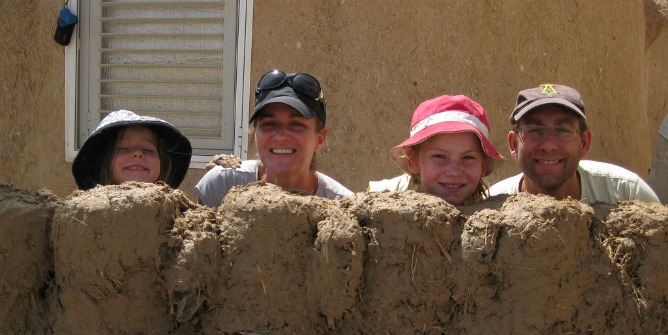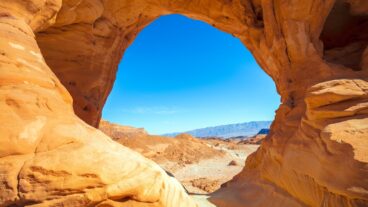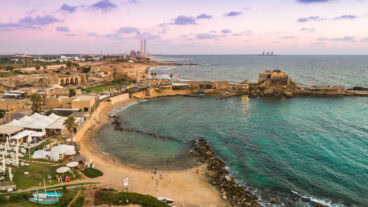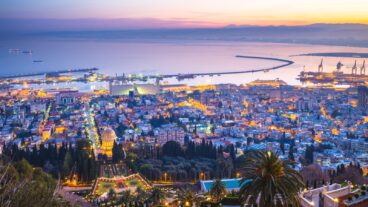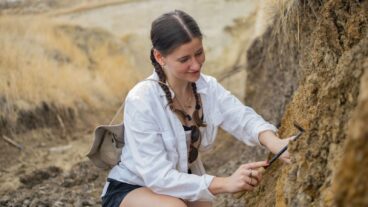They’ll dance in a renovated chicken coop, help answer an SOS call to heal turtles or test-drive Israel’s homegrown electric concept cars from Better Place: Sabras, Israeli natives, are big nature lovers. Known for their wild adventures abroad in India or South America, Israelis enjoy their own country just as much. Find them on a desert trek brewing Turkish coffee, or playing drums on the Dolphin Beach in Tel Aviv as they salute the setting sun.
Spread the Word
• Email this article to friends or colleagues
• Share this article on Facebook or Twitter
• Write about and link to this article on your blog
• Local relevancy? Send this article to your local press
And now, over the last decade, Israelis have developed their passion for the natural world into ecological projects, companies and activities. ISRAEL21c chose 10 top green activities in Israel for 2011.
1. Dance in a coop
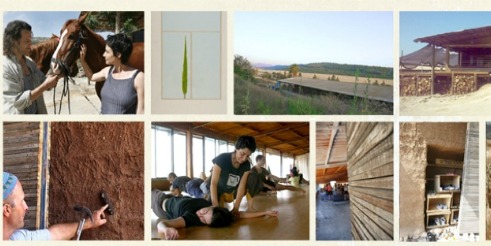
Modern dance is a hot number in Israel – made famous through urban troupes like the Tel Aviv-based Batsheva Dance Company. But out of the city, in the mystical lands of David and Goliath, has sprung up a new variation.
Vertigo Dance Company from Jerusalem has relocated its base station to the Elah Valley, where in a renovated chicken coop, the company dancers host workshops on dance and recycling activities to help heal the earth. Workshops in the mud on movement, and even how to install wind turbines for the home, take place there regularly.
2. Go-Eco
Travel Israel and save the planet at the same time with Go-Eco. Roaming around a country like a wandering gypsy is the old way of traveling. More young people, and the young at heart, are discovering that the way to understand a country’s soul is through volunteering on its land, with its people.
Jonathan Gilben, Go-Eco’s co-founder, says: “We believe in giving tourists the opportunity to get involved with the communities they visit.” To that end, Go-Eco matches up would-be volunteers with green volunteer projects in Israel. Some ideas up for grabs include ecotourism development in Nazareth, summer wildlife adventures in the Arava Desert, or working at the Jerusalem Biblical Zoo.
3. Turtles in rehab
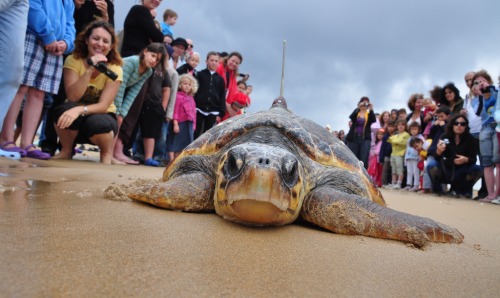
We’re not referring to the celebrity kind of rehab, but to the dire situation for turtles suffering from human addictions to plastic, pollutants and Jeep tours. Operating on a shoestring budget, the Israel Sea Turtle Rescue Center is based near Mikhmoret beach on the Mediterranean close to the major city of Netanya. It is part stud farm, part rescue center.
The center’s staff of two relies on a team of volunteers and spotters who find turtles in distress. A century ago, thousands of sea turtles nested along the Israeli seashore. Now there are only about 180 loggerheads and fewer than 20 green turtles. Stroll along the beach and be a spotter, or contact the center to see how you can help.
4. Better Place
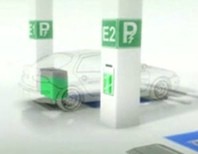
We’ve all heard about the Israeli-developed electric cars, deployed to help start weaning the world off fossil fuels. Visionary companies Better Place and Renault Nissan built an education and test-drive center in central Israel for the public to try out an all-electric vehicle, and it will reopen the center in October ready to sell them as well. Battery swap stations and charge spots are under construction in several parts of Israel.
5. Ariel Sharon Park
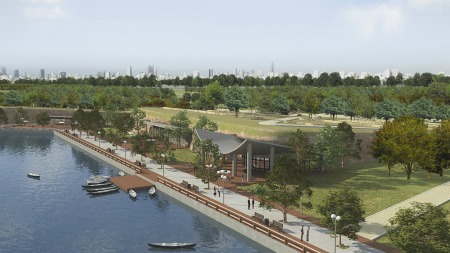
Hiriya was once Tel Aviv’s main garbage dump. Now, after millions of dollars in investments, the site has opened as an ecological wonder-park — Israel’s version of Central Park, but to be three times larger.
Designed with an education and recycling center onsite (group reservations: 03-739663), the Ariel Sharon Park near Ben-Gurion Airport is a typical “green” story emerging from Israel showing how the country can turn its problems (of waste) into its strengths. The expanse of parkland for walking and cycling is only partially complete, with the project expected to continue till 2020.
6. Tel-Ofan
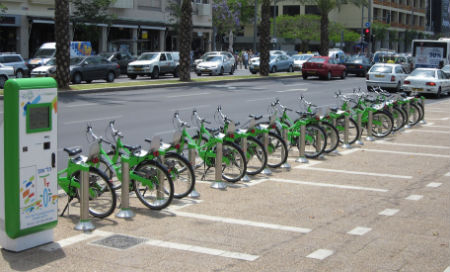
Bike often, and linger awhile: Ten years ago, the only people riding bikes in Tel Aviv were its migrant workers. Today, everyone from bodacious babes to fathers ferrying one or two helmeted kids on their bikes can be seen peddling through the streets. Buying or renting a bike is one way to see Tel Aviv on wheels, and now the city has joined 200 others worldwide as it rolled out its bike-sharing program earlier this summer, called Tel-Ofan.
Pay with your credit card at a base station, and then using an electronic key fob, jump on at one station, cruise to your destination, check in the bike and then pick up another when it’s time to move on. Tel-Ofan removes the threat of bike theft, and allows an easy-access biking experience any time throughout the city.
7. Kibbutz Lotan
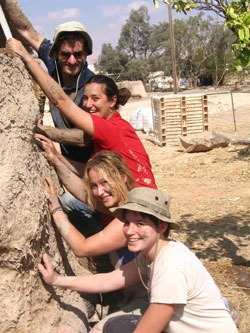
Students of all ages, and religions are escaping the rat race and flocking to Kibbutz Lotan in the Arava Desert to learn the latest in applied ecology, from mud building and solar-oven cooking to Jewish eco-theology and permaculture.
The commune offers a number of options, including the seven-week Green Apprenticeship program to help trainees create alternative solutions for the issues facing the modern, developed world.
Students learn about local food production, community design and sustainable technologies, such as how to build a compost toilet and a geodesic dome. After this course, participants will be fully equipped to live off grid, out in the wild. Or at least dream about it.
8. Field schools
Birders and nature-lovers don’t need to fork out a lot of cash to travel Israel and enjoy its nature. From the beach town of Eilat to Ein Gedi at the Dead Sea environs and up north in the Galilee, the Society for the Protection of Nature in Israel runs a number of field schools for researchers and classes, and doubling as hostels.
Simple but clean offerings including a cot and a basic Israeli breakfast for about $50 a night. Field schools are located in some of the country’s most impressive ecological preservation sites and are one of Israel’s best-kept secrets.
9. Solar sensation
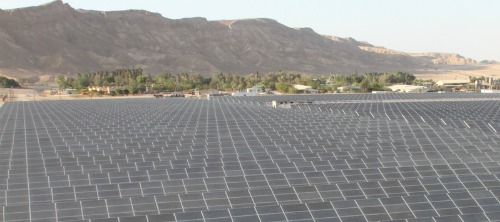
Israeli kibbutzim were started so that Israel could be a land where Jewish people could be self-reliant. Espousing Jewish values, but with a modern twist, Kibbutz Ketura has just become host to the country’s first solar field, in the sunshine-rich Arava Desert.
The 4.95 megawatt solar field is the first of many sunny projects planned by Arava Power. The kibbutz has ample facilities for lodging, should visitors wish to spend the night in a kibbutz theoretically powered by the sun.
10. Slow food
Shop greenly: Israel has a number of open-air food markets. Machane Yehuda in Jerusalem and the Carmel Market in Tel Aviv are both must-sees (and must-tastes!), especially as the week is winding down and Jews are racing around to buy their last-minute supplies for the Sabbath.
Much of the produce and products are sourced locally. One of the best of the country’s showcases for organic produce, meats and cheeses can be found at a permanent “slow food” farmers market at the new port in Tel Aviv.




